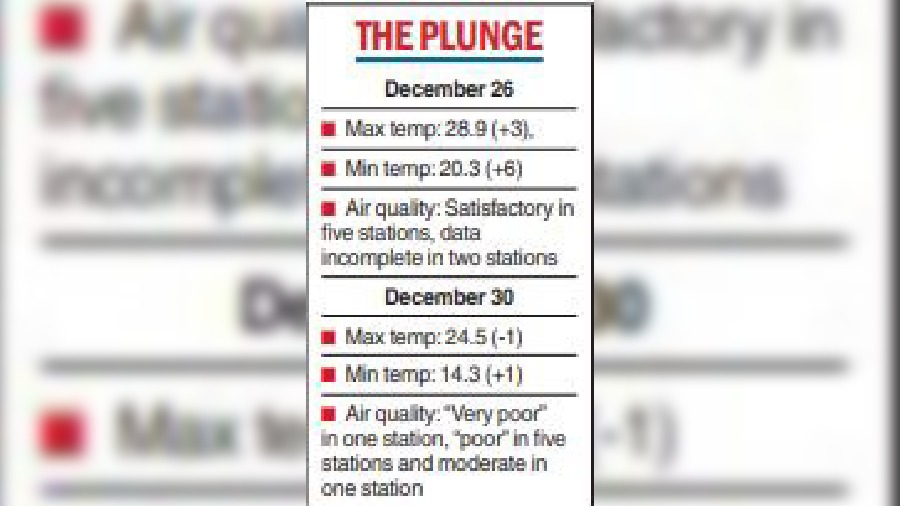The chill in the air is back, but the drop in mercury has also dragged down the city’s air quality.
The Alipore Met office forecast said cold days were ahead at least for the next four to five days.
Environmental scientists said this was both a reason for joy because the chill in the air will persist, but it was also a cause for worry because the air quality could worsen.
For a few days when the temperatures remained higher earlier this week, the air quality remained satisfactory or moderate in most of the seven automatic air quality monitoring stations in the city. With a drop in temperature on Friday, the stations recorded “moderate”, “poor” and “very poor” readings.
On Friday, the minimum temperature between 5am and 6am was 14.3 degrees Celsius, one degree above normal. The maximum temperature in the afternoon was 24.5 degrees Celsius, one degree below normal. The air quality at 6pm on Friday was “very poor” in one station; “poor” in 5 stations and moderate in one station.
According to the National Air Quality Index, “very poor” air quality can cause “respiratory illness on prolonged exposure”. “Poor” air quality can cause “breathing discomfort to most people on prolonged exposure”. When the air quality is satisfactory it can cause “minor breathing discomfort to sensitive people” while moderate air quality can trigger “breathing discomfort to the people with lungs, asthma and heart diseases”.
The maximum temperature recorded on Monday, the day after Christmas, was 28.9 degrees Celsius, three degrees above normal.
The air quality was satisfactory in 5 out of seven air quality monitoring stations at 6pm on Monday.
As the temperatures drop, the air close to the ground becomes cold and does not rise like warm air. The cold air hangs around close to the ground. The pollutants get trapped in the air and stay close to the ground. When the conditions are warm, the air rises up. The pollutants disperse with air.
A report by the National Environmental Engineering Research Institute (NEERI), published in 2019, mentioned that vehicular pollution was a major source of PM 2.5 in Kolkata during winter.
